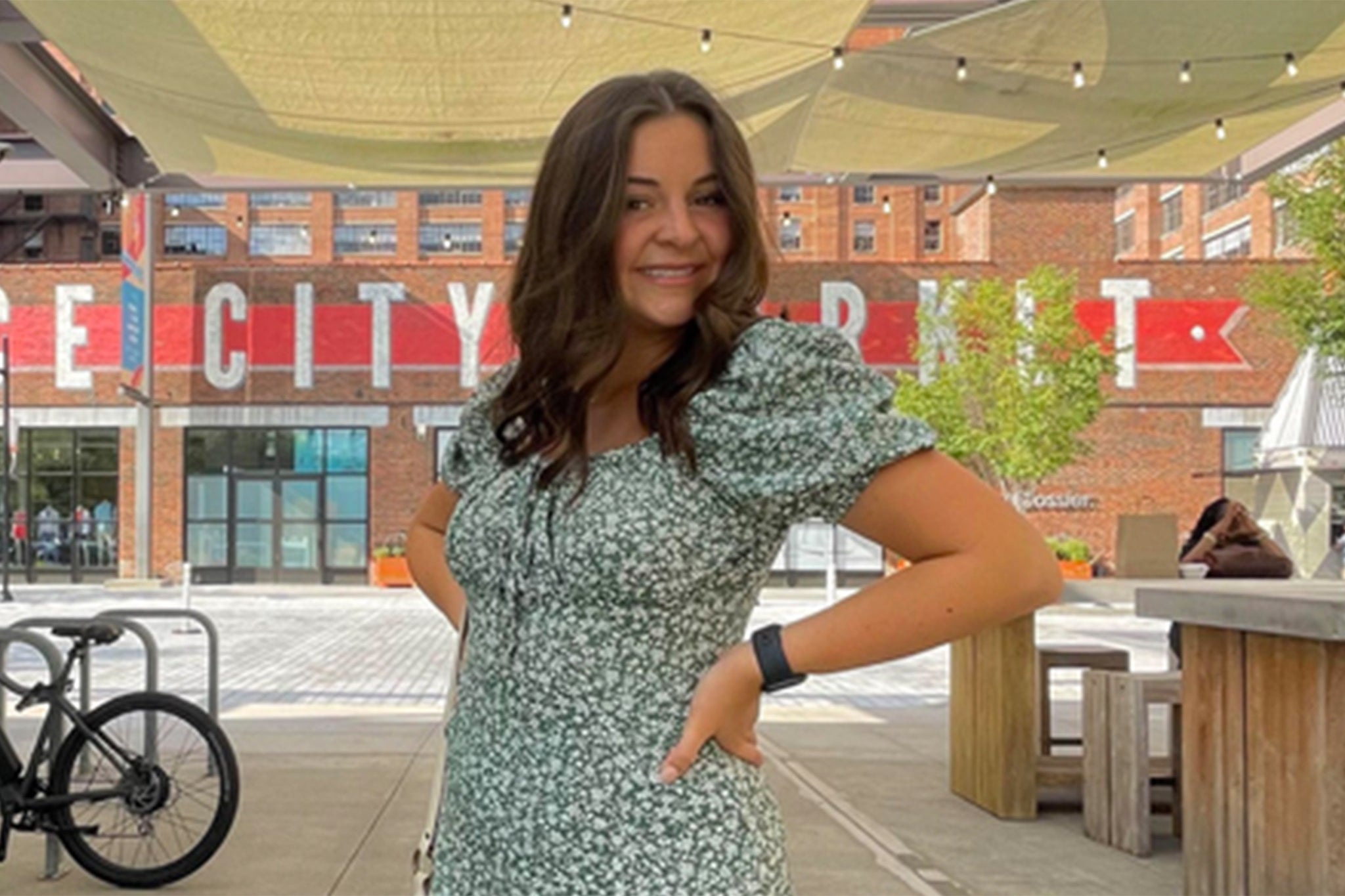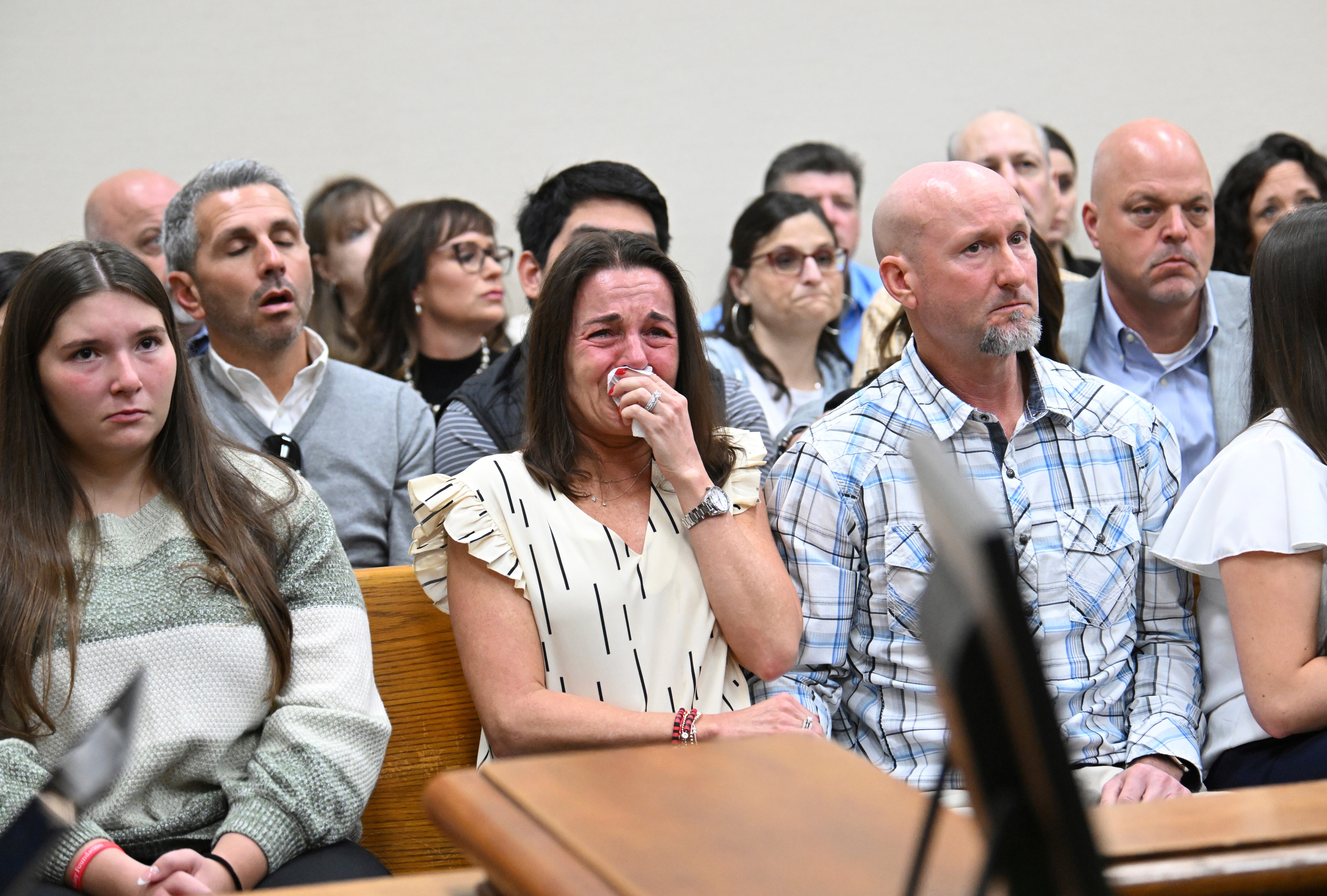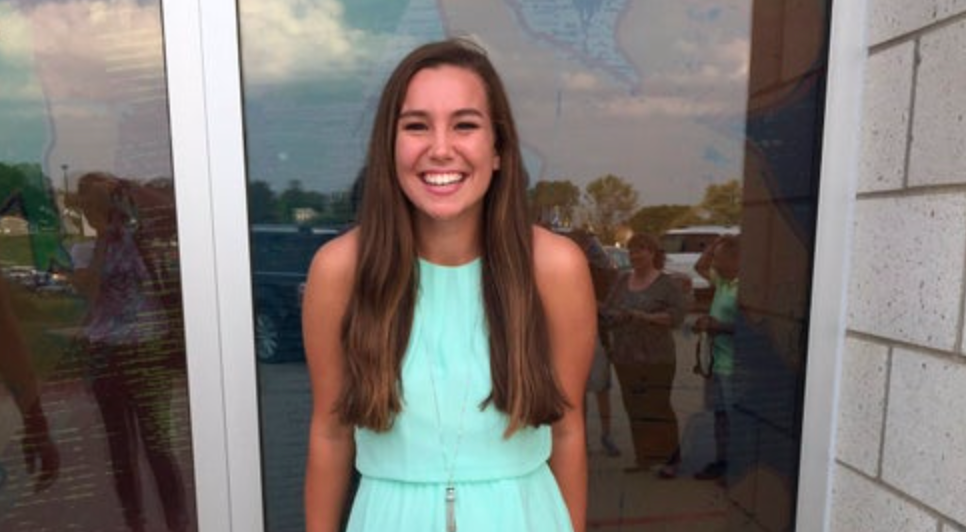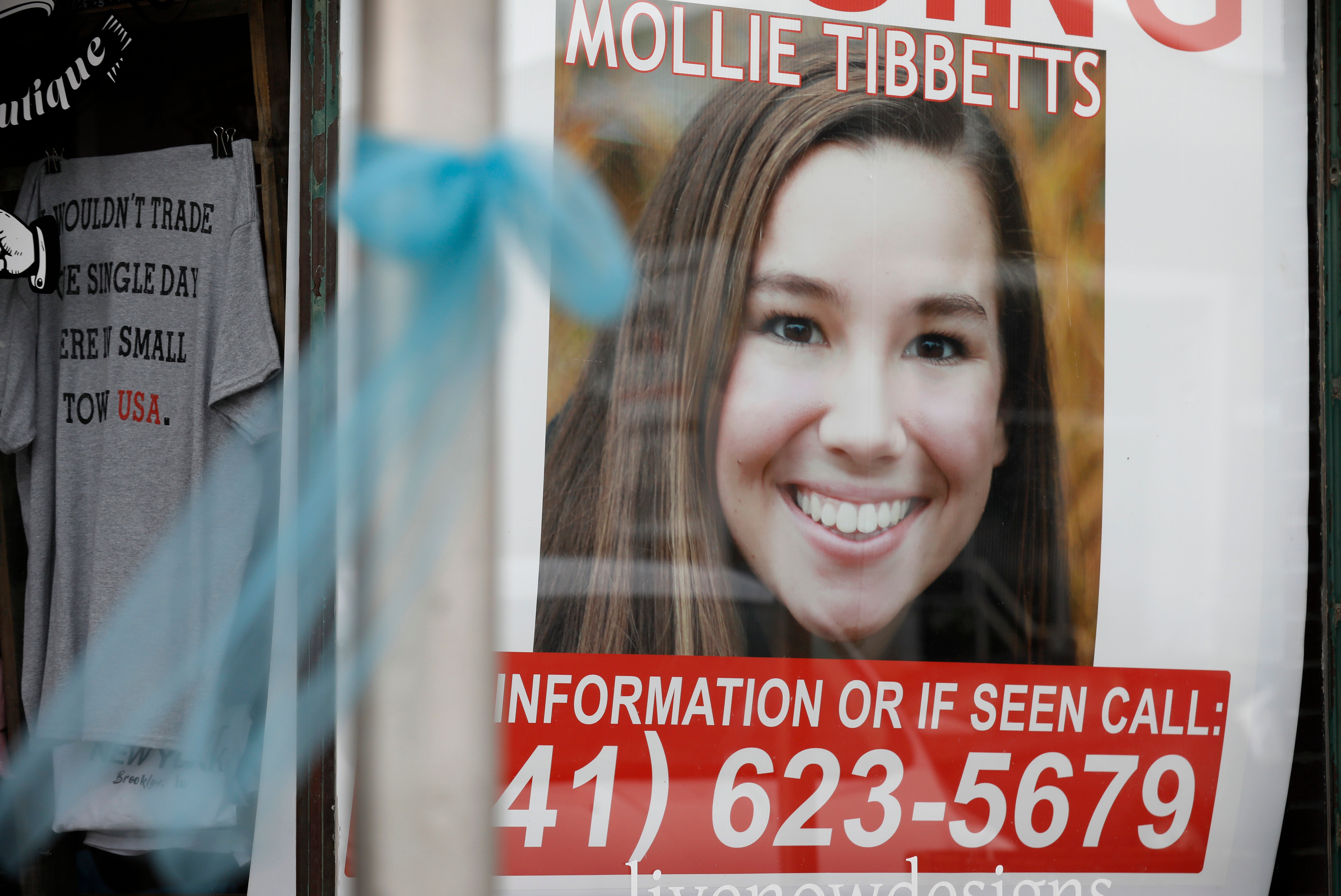Laken Riley followed all the safety precautions. But she was still attacked and killed while out for run
Going for a solo run as a female shouldn’t be dangerous. But the murders of Laken Riley, Mollie Tibbets, Karina Vetrano, and many more other women in recent years remind us it is. Andrea Cavallier reports
Laken Riley did all things people recommend a woman running by herself should do when she laced up her sneakers and hit the trails on the morning of February 22.
She told friends where she was going. She had her tracking location on. She made sure to run on a popular trail with others around. She even managed to call for help during the attack.
But it still wasn’t enough.
The 22-year-old University of Georgia student was brutally beaten to death while out for a run, once again putting the spotlight on the dangers female runners face.
Months later, her killer stood trial for his horrific crimes. Jose Ibarra, 26, a Venezuelan native who entered the US illegally, was convicted of her murder and sentenced to life without parole. Prosecutors had said he was out “hunting for females” when he came across Riley on February 22. When she “refused to be a rape victim, he bashed her skull in with a rock repeatedly.”
But Riley wasn’t the first and, sadly, she’s not the last — Alyssa Lokits was shot and killed after she screamed “Help! He’s trying to rape me” while exercising on a Nashville trail last month.
Laken Riley was killed by a man who was out ‘hunting for females’
As her sister’s killer was about to be sentenced for her murder, Lauren Phillips, a freshman at the University of Georgia, talked about the pain of living without her “favorite person” and the effect her sister’s death has had on her.
“I cannot walk around my own college campus because I’m terrified of people like Jose Ibarra,” she told the court at the sentencing.
Riley texted her mother, Allyson Phillips, that morning at 8:55 a.m., writing, “Good morning, about to go for a run if you’re free to talk,” according to University of Georgia Police Sgt. Sophie Raboud who testified at Ibarra’s trial.
Riley then tried calling her at 9:03 a.m., but when it went unanswered, she turned on her music. She was captured on a trail camera at 9:05 a.m. running with her iPhone in her left hand toward the intramural fields.

At 9:11 a.m., Riley called 911, Raboud said. Witnesses testified that Riley made the call through the SOS app on her phone. The dispatcher was not able to speak with anyone before the call cut out and the dispatcher called back twice with no answer, the court heard.
At 9:24 a.m., her mother tried to call, but nobody answered. Then her mother and sister both called her phone.
At 11:47 a.m., her mother texted, “Please call me, I’m worried sick about you.”
Riley’s roommates, who testified that they were able to track Riley on her phone, were seen on camera later that morning, searching for her on the trail. At 12:05 p.m., they reported her missing to campus police and at 12:38 p.m., a University of Georgia police officer found her body 65 feet off the trail.
Data from her Garmin watch showed her heart stopped at 9:28 a.m.

When her body was found, the waistband of her running tights was pulled down and her jacket, shirt and sports bra were pulled up, evidence that her clothes were displaced by an attempted sexual assault not by dragging, Prosecutor Sheila Ross told the court during Ibarra’s trial.
Ross said Ibarra’s DNA was found under Riley’s fingernails and her DNA and Ibarra’s were found on a jacket that police found in a dumpster at his apartment complex. A man seen in security footage throwing that jacket away was identified as Ibarra by his brother and another roommate.
After about three days of testimony, Ibarra was found guilty of all 10 counts against him. Athens-Clarke County Superior Court Judge H. Patrick Haggard made the decision after Ibarra waived his right to a jury trial.
The courtroom in Athens is just two blocks from the edge of campus, where many students grappled with a shaken sense of security following Riley’s murder.
“Just because we’re on campus doesn’t mean, necessarily, that the bad parts of the world can’t get in,” Allison Mawn, a fourth-year student, told CBS News.
“She did everything right. She told friends where she was going, she went on a popular trail during the day. She had her tracking location on. She even managed to call for help, and still it wasn’t enough.”
Mollie Tibbetts’ 2018 murder sparks #MilesforMollie movement
When 20-year-old University of Iowa student Mollie Tibbetts was killed in 2018 while out on a run in her rural hometown of Brooklyn, Iowa, it prompted an outpouring from other women who shared their own stories of being harassed and followed while jogging.
The murder sparked the hashtag #MilesforMollie movement — enabling other female runners to express their grief over Tibbetts’ tragic death and their determination not to let fear prevent them from doing what they love.
“This run is for you Mollie. We are with you. We will not allow fear to stop us from doing the things we love,” University of Iowa alumna Sarah Hemann Bishop posted on Twitter back in 2018 in the wake of Tibbetts’ death. “Miles for Mollie” was written on the side of her sneakers.

Tibbetts went for a jog on July 18, 2018, and never returned. Her disappearance triggered one of Iowa’s largest manhunts, and her body was found more than a month later.
Investigators zeroed in on Cristhian Bahena Rivera, who worked under an alias at a nearby dairy farm, after finding a homeowner’s surveillance video that appeared to show his Chevy Malibu repeatedly driving past Tibbetts as she ran.
After an interrogation, Bahena Riveraled authorities to a cornfield where he had buried Tibbetts’ body under leaves and stalks. Only her bright running shoes were visible. An autopsy found she had been stabbed several times.
Bahena Rivera told investigators that he approached Tibbetts because he found her attractive, and that he fought her after she threatened to call the police. He said he then blacked out and came to as he was driving with her body in his trunk.
Prosecutors suggested Bahena Rivera had a sexual motive, noting Tibbetts was wearing only socks and a sports bra when her body was found. They built their case around the surveillance video, his partial confession and DNA evidence of Tibbetts’ blood in his trunk.

Bahena Rivera’s lawyers argued that his confession was false and coerced, and their client gave surprise testimony at trial sharing a different account.
Bahena Rivera testified that two masked men kidnapped him from his trailer at gunpoint, made him drive while they attacked Tibbetts, instructed him on where to dispose of her body, and told him to stay quiet or that his young daughter and ex-girlfriend would be killed.
But a jury found him guilty and he was sentenced to life in prison without parole.
Karina Vetrano went for a run in 2016 – and never came back
Karina Vetrano frequently went running with her father, Phil, who is a retired firefighter.
But on August 2, 2016, her father was not able to go due to a back injury, so Vetrano went for a solo late afternoon run in Spring Creek Park, less than a block away from her home in Queens, New York.
The 30-year-old never returned home and her father grew worried.
“Her father began to call her several times on the phone,” New York City Police Department’s chief of detectives, Robert Boyce, told reporters at the time. “She did not answer.”
Later that night, her father found her body facedown about 15 feet off the trail. She had been attacked, sexually assaulted, and strangled to death.
It’s believed she had been struck in the back of the head with a rock.

But like Riley and so many others, Vetrano put up a ferocious fight against her attacker. One report revealed she bit the man so hard she cracked her teeth. Her hands were clutching grass from where she had been dragged off the trail, police said.
Vetrano had been grabbed so tightly that a handprint could be seen on her neck. Her attacker’s DNA was found under her fingernails, but it would take six months for an arrest to be made.
Then in February 2017, Chanel Lewis was arrested and charged with her murder after being linked by DNA evidence.
After being found guilty on three counts of murder and one count of sexual abuse, Lewis was sentenced to life in prison without parole.
In July of this year, the block of 65th Avenue at 84th Street in Howard Beach in Queens was renamed ‘Karina Vetrano Way’ in her honor.
At a dedication, her mother read a poem she had written about her.
“She’s gentle. So fragile my girl. A tiger she rages. She roars in this world,” she said tearfully.
Vetrano would have turned 38 years old that week.
How safe are we?
According to a survey by athletic wear company Adidas last year, 92 percent of women reported feeling concerned for their safety while out running with half afraid of being physically attacked.
More than a third of women said they experienced physical or verbal harassment, including sexist comments and being followed.
Running groups and women’s forums have offered tips on how women can try to stay safer while exercising: Run during daylight hours or with a friend; avoid headphones; carry pepper spray or a whistle; carry your phone and make sure it’s charged; mix up running routes; inform a friend of your whereabouts and check in with them when you’re done.
In a 2016 Runner’s World survey, 43 percent of female respondents said they’d been regularly subjected to harassing behavior (catcalls, whistles, honked horns, sexual propositions, etc.) that made them feel unsafe.
Even more troubling, 54 percent of women said that, prior to their solo runs, they feared assault or unwanted physical contact, and 30 percent had at least once been followed by a car, cyclist or pedestrian while running.

